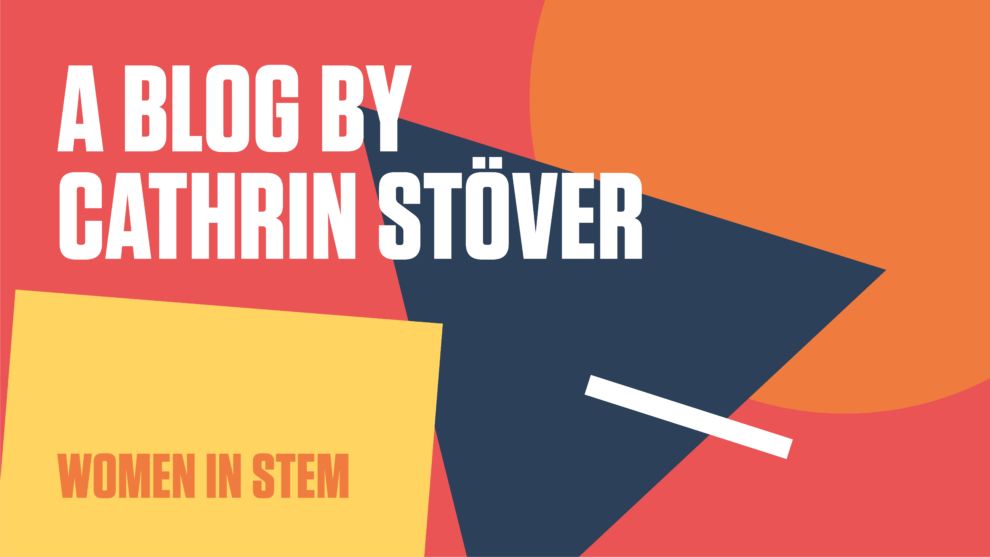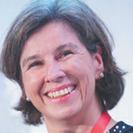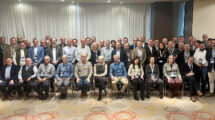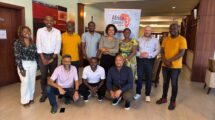It’s been a real pleasure following the ongoing GÉANT Women in STEM campaign.
Watching the one-minute contributions and testimonials from women and men across our global community shows just how much commitment there is to increasing diversity and bringing women and their voices to the table, to be heard and seen. There is commitment, hope but, at times, also a certain level of frustration, there is realism, but also surprise and wonder. I would like to reflect a bit on three of the contributions from a very personal perspective.
Let’s start with Ann Harding’s frustration. I really do get that. It was in 1992 that I quit my very first job. I had participated in a two-year industrial training programme for management with a chemical company. We were 12 of us together in this programme, six men and six women. At the end of the two-year period, some of us left to go on to university, the rest, and I was one, accepted job offers to stay.
Six months later, I found myself talking to the CEO explaining to him why I had to leave. The words I used then reflect the words that Ann Harding uses in her testimonial: “you waste the potential of half of your employees”.
Hearing my words then repeated by Ann today was quite a shock. 30 years have passed and here we are, different industry, same problem, same frustration, same words. We seem to be making baby steps when it comes to Women in STEM and true equality. I agree with Ann, that we need to challenge the concept of merit and tackle the laziness of “the pipeline problem”.
What makes me hope are my younger colleagues, male and female. They are in their mid-twenties and early-thirties, and they have found their voice on this topic. They speak up, much more than I ever dared at that age. And they speak up in an environment where many across all generations are also much more ready to listen and, I think, ready to support and even make space. Making space is the challenge.
The contribution I most identified with is from Ecaterina Matenco, describing her wonder that she – as a “girl from the village” – could make it. I could so see myself here – how many times does it cross my mind that I am just a girl from the village, even though I have lived in capital cities now over thirty years and have travelled to many countries. I guess this feeling of wonder in the big wide world will never leave me completely.
Wherever we come from, whatever the background, it is important that we have confidence. Confidence to speak up, confidence to hold our head high and look the other in the eye. Confidence to walk on that stage, give that presentation or talk and get your message across. If anybody tries to put you down – this just shows that person’s limitation, not your own.
And then there is Mandeep Saini’s message of the benefits of a female network. The way we learn from our mentors, the way we communicate with each other, we build trust, and we are there for each other.
For a long time, I considered that there was not much difference between a network of colleagues and a specifically female network, until I was in trouble some time back. That is when I realised how loyal and tight a functioning female network is. In times of trouble and when I needed help, one woman after the other spoke up for me, stood in front of me, was there for me. It was done quietly and effectively. And the challenge was overcome.
When we work together, we need each other. Work relationships can be very intense and in a community such as ours, where we base so much on trust and consensus, we have to have strong relationships and bonds. These relationships are built with men and women, across teams and organisations. But there is a beauty to a female network that I cherish, and my female colleagues hold a very special place in my affection. I hope to be there, as you were there for me.
And let’s repeat Mandeep’s final words: “one woman can make a difference – many women have impact”. So true.
GÉANT’s Women in STEM campaign is a result of this ongoing conversation in our community. I am so proud that this campaign is driven out of my team and supported across our organisation and embedded into our European and international communities. Over the last few weeks, we have collected video material from 24 female and male colleagues collecting their views on different topics. The result contributes and gives direction to the conversation in our community.
I would like to thank my colleagues Silvia Fiore and Andrea Meloni for each putting their heart into turning the idea for this Women in STEM campaign into reality.
And I would like to thank all the contributors from all over the world for sharing their thoughts and experiences.
Please follow us on our social media and don’t miss our #WomeninSTEM episodes! Add your voice, we would love to hear from you.







